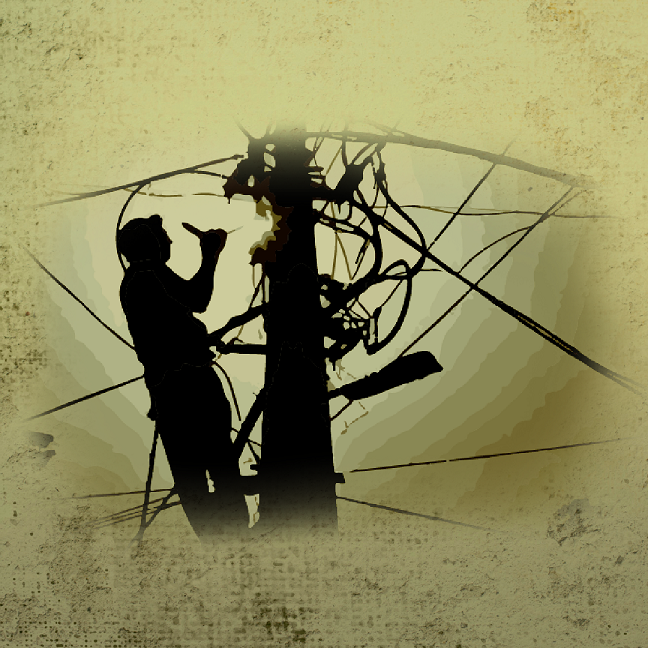The circulation deficit of the power sector in Pakistan has exceeded Rs2,700bn, according to the figures disclosed by January this year. The people are paying high electricity prices due to the theft of Rs49bn worth of electricity every month.
After each financial loss report, the distribution companies officials start taking action against the culprits for a few days and that’s all. It results in an increasing loss rate.
Muhammad Afzal is a resident of Daroghawala, Lahore. He is a labourer hardly making ends meet. The Lahore Electric Supply Company (Lesco) recently severed his electricity connection and imposed a fine of Rs80,000 on him.
He was unable to pay a three-month bill due to his limited monthly income of Rs15,000 to 20,000. Therefore, like other residents of the area, he started stealing electricity through a direct connection with the transmission line as due to expensive electricity and heavy bills, the people with low income are inclined to this electricity theft.
However, within a few days, the Lesco team not only removed all the wires but also fined all such consumers as were using electricity through a direct connection with the transmission line.
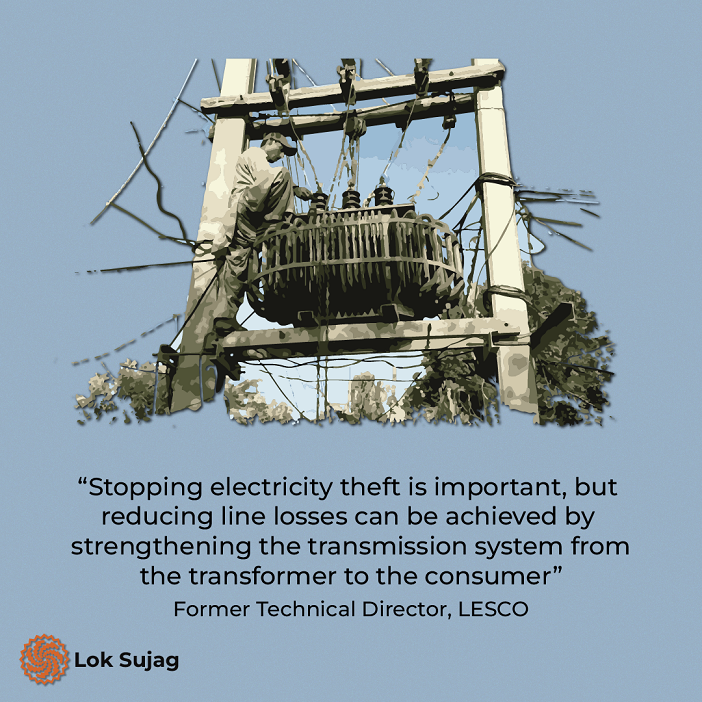
According to the figures mentioned by the government in January, electricity worth Rs3,781bn is supplied to the system in the country except Karachi out of which, approximately Rs3,192bn is returned, which indicates the annual theft of electricity worth Rs589bn.
Caretaker Energy Minister Muhammad Ali, at a press conference, said that electricity theft was making the commodity more expensive for bill-paying individuals.
According to the National Electric Power Regulatory Authority (Nepra) consumer manual, tariff (cost) shall mean electricity rates, charges, terms of generation, transmission, interconnection and services (distribution and sale) of distribution companies. The consumer pays all these costs on a per-unit basis.
Technical loss during electricity supply falls into two categories. Losses in transmission from generating units to the main grid through high transmission lines are called T&T (transmission and transformation) losses that are credited to the National Transmission and Dispatch Company (NTDC).
The losses in the lines from the grid to the consumer are called T&D (transmission and distribution) losses that are borne by the distribution companies (DISCOs).
Nepra has allowed the NTDC for T&T losses of 2.639 percent on 500kV and 220kV networks, while the limit has been set at 4.3pc for the Matiari-Lahore 660kV line.
However, the losses of the NTDC are often limited but the losses of electricity distribution companies are boosted due to power theft.
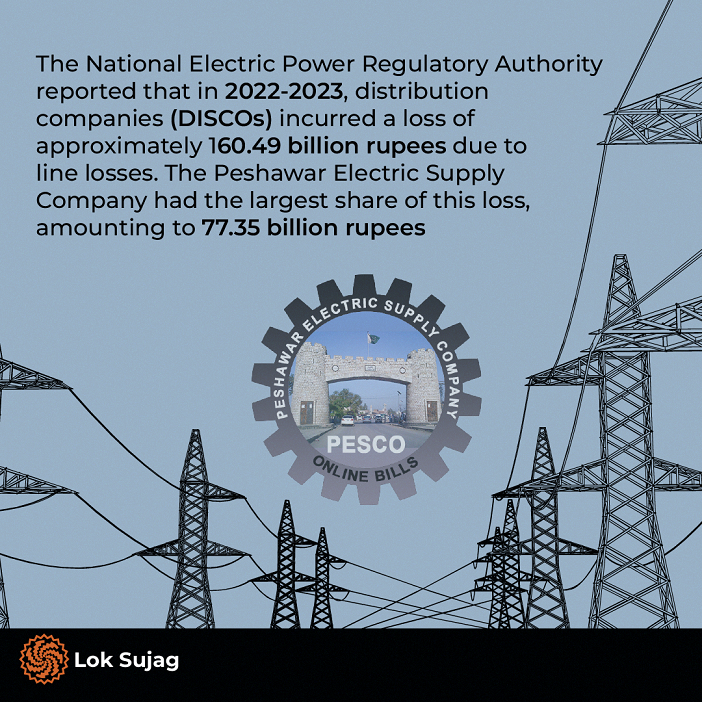
Nepra issued its decision in July after submission of an application by the Central Power Purchasing Agency for May last year to increase the price of electricity under fuel cost adjustment (FCA).
The application stated that the consumer rate of the distribution companies was fixed at Rs7.8281 per unit (kWh) whereas the expensive fuel caused the cost per unit to Rs 9.8817 in May. Therefore, the rate was proposed to increase by Rs2.0536 per unit for the respective month.
The NTDC reported temporary T&T line losses of 262.48 GW or 2.260 percent in May supply while losses of high voltage line Matiari-Lahore were reported at 35.491 GW or 2.927 percent.
Nepra mentioned that the Thar Coal Block One (TCB-I) to Matiari Lahore High Transmission Line was completed on May 9, 2023. However, due to bottlenecks in the system and the failure of the departments concerned to resolve the issues, Thar Coal projects supply remained short by around 55.68 GW, causing a financial loss of billions of rupees.
Nepra announced that power generation plants with expensive fuel were operated during May 2023, which is a deviation from the Economic Merit Order (EMO) of the system operator (National Power Control Center Department of NTDC).
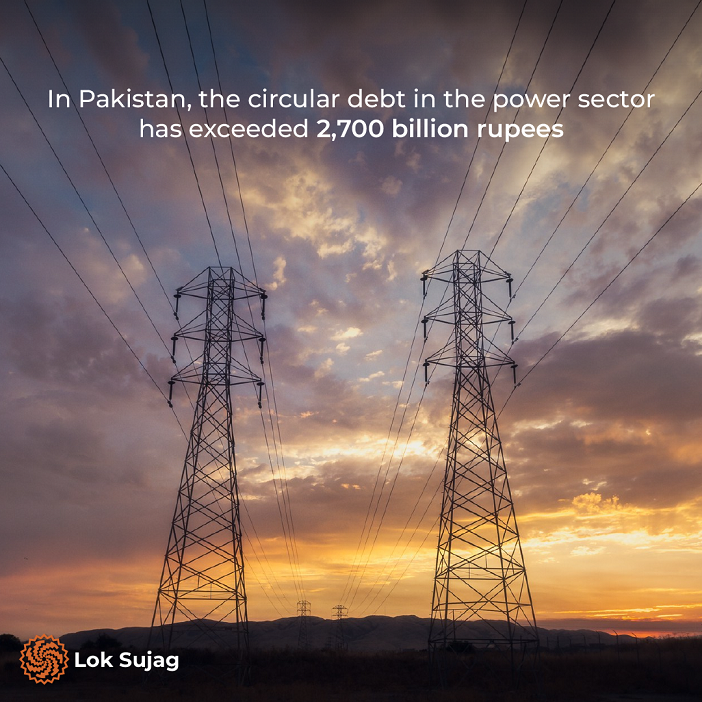
As a consequence, financial loss from the strategic table was Rs864.6m due to the closure of the transmission line (permanent breakdown / HVDC), and Rs46.9m due to the suspension of contracts (take and pay).
Similarly, there was a loss of Rs611m due to transmission network overloading, Rs99m in transformation overloading and Rs48m due to underutilisation of high-efficiency plants, which summed up to Rs1.6bn.
Nepra has temporarily stopped adding this amount to the FCA but has approved a rise of about two rupees (1.9039) per unit instead of Rs 2.0536 for May.
DISCOs separately approached Nepra to expand their tariff. On a similar request, a tariff adjustment was observed for the fourth quarter of the financial year 2022-23 under which a recovery of more than Rs135bn was put on the consumers.
Nepra issued this decision on Sept 22, 2023, stating that the recovery would include market operator fees and FCA's impact on line losses (T&D), changes in capacity charges, and O&M (operation and management). However, incremental sales are subject to additional collection and system charges.
Further, it stated that more than Rs135.5bn are set to be collected from the consumers of DISCOs and K-Electric in the next six months (i.e. from October 2023 to March 2024). For the implementation, the price of electricity for six months is increased to Rs3.2814 per unit (uniform tariff rate).
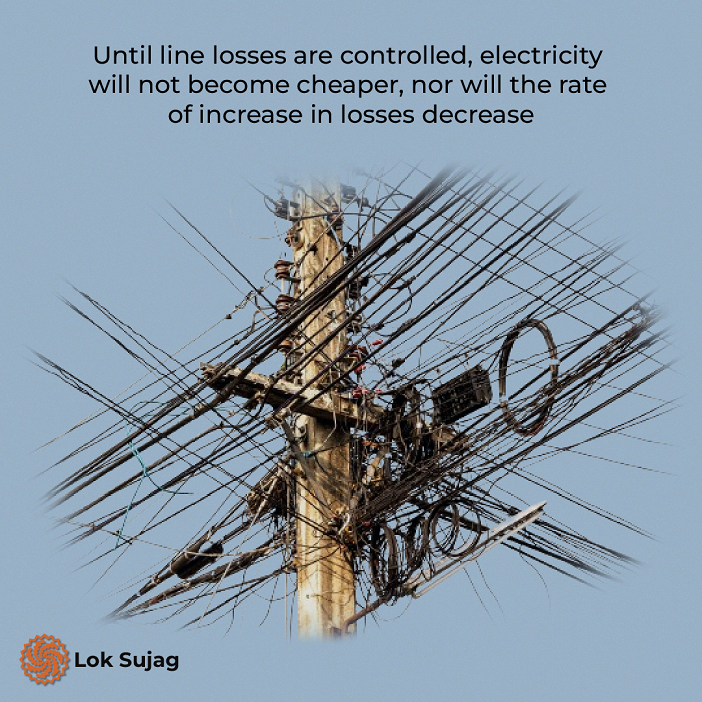
Interestingly, the fuel cost adjustment decision announced the details of line losses, whereas no detail of T&T line losses is mentioned in the DISCOs’ decision on the tariffs.
However, they increased the bill by Rs3.2814 per unit citing the ‘market operator fees and FCA impact on line losses’.
Line losses or power theft more than the limits set by Nepra and failure to recover are considered DISCOs losses, which results in consistent loss increase despite increasing the electricity cost. Thus, people are facing the consequences of distribution company’s failures.
Senior journalist Talib Faridi, who has been reporting on the energy sector for many years, says the loss amount is now added to the total price of electricity fed into the system. It is then divided into utilised units to determine the price per unit.
The 2023 State of Industry Report of the National Electric Power Regulatory Authority states that the DISCOs incurred a loss of approximately Rs160.5bn in line losses during the financial year 2022-23, of which Peshawar Electric Supply Company (Pesco) had the largest share of Rs77.3bn.
According to the report, Iesco lost Rs28bn, Lesco Rs21.7bn, Mepco Rs7.9bn, Hesco Rs15bn, Sepco Rs20.3bn, and Kesco Rs21.2bn in the same year. However, Tesco's line losses were around Rs160m, Gepco's Rs1.8bn and Fesco's Rs1.4bn.
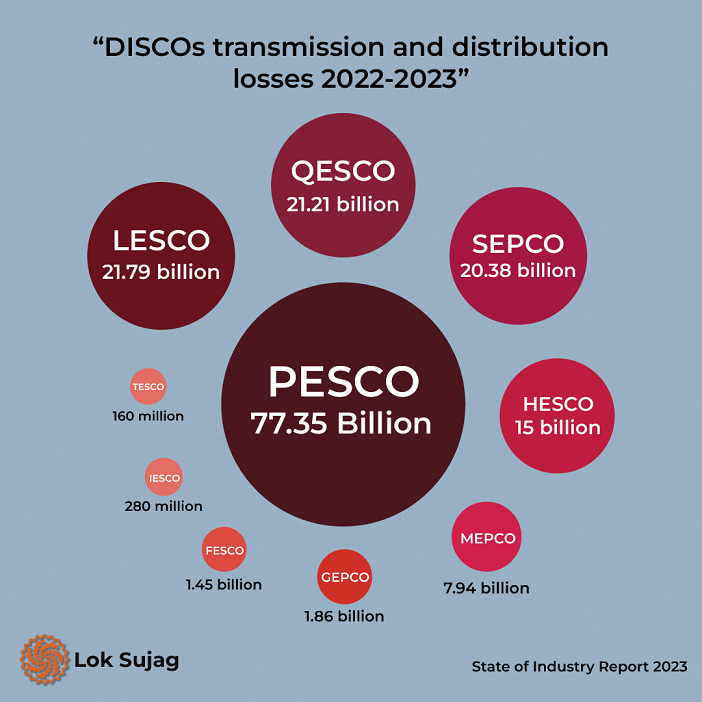
Meanwhile, DISCOs failed to collect bills worth about Rs212bn last year while K-Electric could not collect more than Rs 38.8bn, which is the main reason for circular debt.
The report admits that DISCOs make fictitious billing to cover line losses (D&T) and shortfall in collections.
Nasreen Bibi, a widow, lives in Batapur, a suburb of Lahore. She complains that despite of absence of a fridge and any other machines at her home she received an electricity bill worth Rs24,000 this year in January.
According to her, she was charged extra as there were less than 100 number of used units. She visited Lesco’s office to get the bill rectified but the staff refused to do so. Now, she’s paying the bill in instalments on someone’s recommendation.
Talib Faridi confirms that electricity theft in Lahore and its suburbs is about 30pc of the total supply, leading to inflated billing in the region. Additional units increase the taxes along with the tariff and on a customer complaints, the bill is set to be paid in installments.
What’s more concerning is that even the government is not taking notice of inflated billing. However, on the citizen's complaints, the NEPRA focal person says, the authority has asked for the details of inflated billing from DISCOs and officers concerned will be held accountable after receiving the report.
Also Read

In Balochistan’s Shirani district, a community struggles without power for eight years
Former chief engineer of NTDC Jafar Hussain believes that to reduce the distribution line losses, electricity theft needs to be controlled.
However, former director technical Lesco Syed Shabihul Hassan believes that preventing power theft is important but line losses can be reduced more by strengthening the power transmission system from the transformer to the consumer. According to him, it is essential to review the contracts with the Independent Power Producers (IPPs) to reduce the deficit.
Regarding electricity theft, the Lesco spokesperson says that out of 54092 people involved in electricity theft in the last five months, cases were registered against 49,907 while 17,564 suspects were arrested.
He informs that a fine of more than Rs2bn has been imposed on the electricity thieves to date. Lesco officers and employees were also found involved in many incidents of electricity theft and were subjected to an inquiry.
Talib Faridi believes that whenever electricity is expensive to cover the deficit, theft increases. It has reached 50 to 60 percent in various areas of Sindh and Balochistan. However, he believes that until the line losses are controlled the electricity will not be cheaper and rate of loss would not decrease.
Published on 22 Mar 2024
